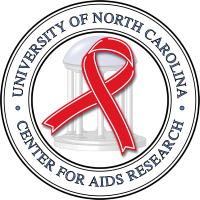About Unc chapel hill center for aids research
The UNC Chapel Hill Center for AIDS Research (CFAR) is a leading institution dedicated to advancing the fight against HIV and AIDS. With a fierce commitment to creating and translating knowledge, CFAR has become a beacon of hope for those affected by this devastating disease.
Founded in 1999, CFAR has been at the forefront of HIV/AIDS research for over two decades. The center brings together experts from various fields, including medicine, public health, social sciences, and basic sciences. This interdisciplinary approach allows CFAR to tackle complex issues related to HIV/AIDS from multiple angles.
One of the key strengths of CFAR is its focus on translational research. This means that the center not only conducts cutting-edge scientific studies but also works closely with communities affected by HIV/AIDS to ensure that research findings are translated into practical solutions that can improve people's lives.
CFAR's research portfolio covers a wide range of topics related to HIV/AIDS prevention, treatment, and care. Some of the areas where CFAR has made significant contributions include:
- Developing new antiretroviral therapies: Antiretroviral therapy (ART) is currently the most effective treatment for HIV infection. However, there are still many challenges associated with ART use, such as drug resistance and side effects. CFAR researchers are working on developing new ART regimens that can overcome these challenges and provide better outcomes for people living with HIV.
- Understanding viral reservoirs: Despite advances in ART, it is still not possible to cure HIV infection completely because the virus can hide in certain cells called viral reservoirs. CFAR scientists are studying these reservoirs in detail to find ways to eliminate them or prevent their formation.
- Addressing health disparities: Certain populations such as men who have sex with men (MSM), transgender individuals, people who inject drugs (PWID), and African Americans are disproportionately affected by HIV/AIDS. CFAR researchers are working on identifying factors that contribute to these disparities and developing interventions that can reduce them.
- Developing effective prevention strategies: While there is no vaccine or cure for HIV yet, there are several effective prevention strategies available such as pre-exposure prophylaxis (PrEP) and condoms. However, uptake of these strategies varies widely across different populations. CFAR researchers are studying ways to increase access and adherence to these prevention methods.
In addition to its research activities, CFAR also provides training opportunities for students and early-career scientists interested in pursuing careers in HIV/AIDS research. The center offers fellowships, internships, seminars/webinars series throughout each year which helps young professionals gain valuable experience while contributing towards finding solutions against this deadly disease.
Overall UNC Chapel Hill Center For AIDS Research plays an important role in advancing our understanding of how we can combat this global epidemic through innovative approaches like translational science which translates scientific discoveries into practical applications benefiting those living with or at risk from contracting this disease worldwide!
